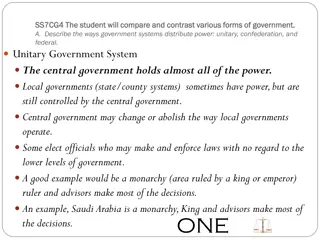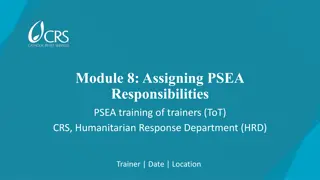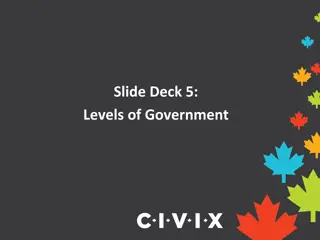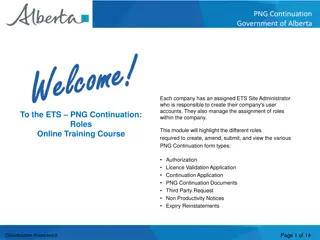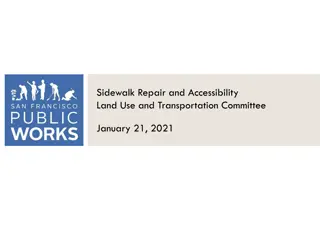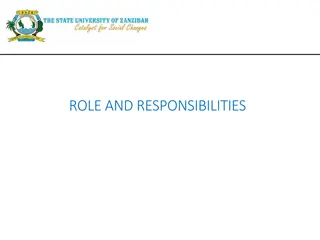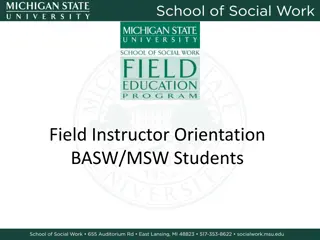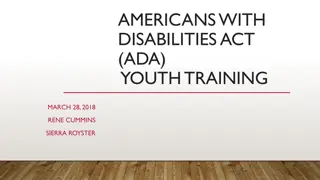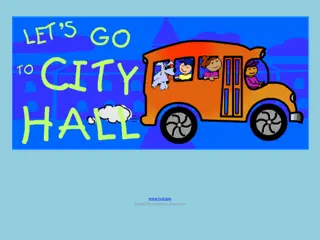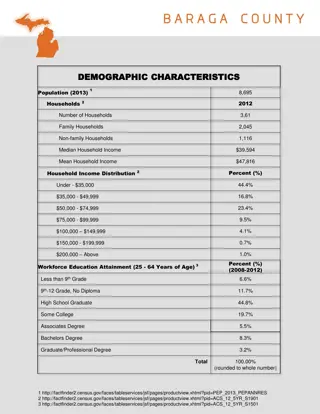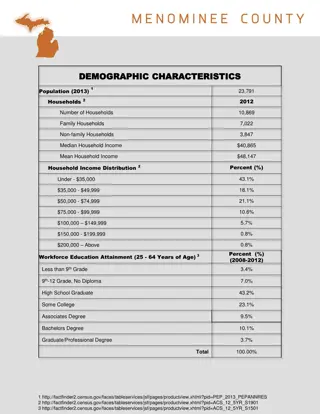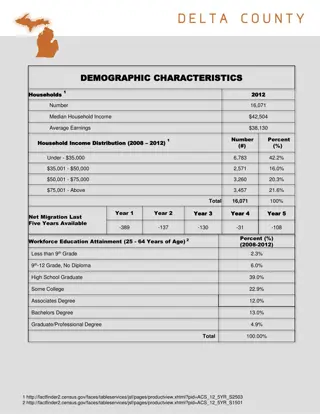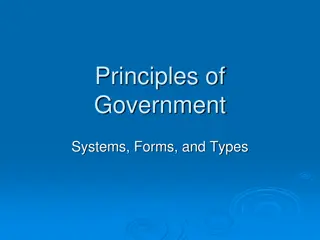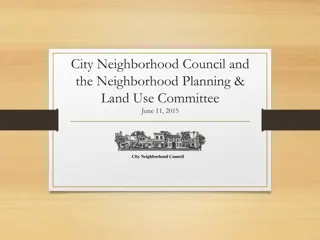Understanding City Government: Roles and Responsibilities Explained
In this comprehensive guide, learn about what a city is, who qualifies as a citizen, and the functions of a city government. Explore the different forms of governance, the duties of key officials like the Mayor, Council, and City Manager, and discover the variety of job roles within a city. Gain insights into the essential aspects of city life and governance in Florida, including how municipalities operate and the significance of living within city limits.
Download Presentation

Please find below an Image/Link to download the presentation.
The content on the website is provided AS IS for your information and personal use only. It may not be sold, licensed, or shared on other websites without obtaining consent from the author. Download presentation by click this link. If you encounter any issues during the download, it is possible that the publisher has removed the file from their server.
E N D
Presentation Transcript
CITY GOVERNMENT 101
WHAT IS A CITY? A city is a municipal government. A municipality is a city, town or village. In Florida, there is no difference between a city, town or village. They all mean the same thing! The founding citizens choose the name of the city and, in doing so, decide whether to call the municipality a city, town or village. Who is a citizen in my city? You are! A citizen is a resident of a city, state or nation; a consumer of public services. Only 50% of Florida s residents live inside a city, town or village. The other half of Florida residents live in unincorporated county areas, which are not part of any municipality. Living in a municipality is a choice. It is the only optional local government in Florida.
WHAT DOES A CITY DO? A city has certain rights and privileges, just like the state and federal government. A city only serves the citizens living within the city limits. To form a city, citizens create a charter. A charter is like a constitution in that it is written and adopted by the citizens of a municipality. The charter includes aspects such as the city boundaries and what type of government the city will have. An ordinance is a law enacted by a city or county affecting local affairs such as traffic, noise and animal control.
Duties of the Mayor Duties of the Council Duties of the City Manager FORMS OF GOVERNMENT Office of mayor is usually rotated among the council members Authority is little, if any, greater that that of the other councilmembers Acts as ceremonial head of government Holds collective power over administration Decides policies and creates ordinances Not present in this form Council-Weak Mayor May have veto power over council Has executive power to carry out policies Prepares budget, makes appointments and manages daily operations Acts as ceremonial head of government Decides city policies, but has no administrative power Not present in this form Council-Strong Mayor Presides over commission meetings Commissioners serve collectively as the policy- making board and individually as heads of the principal departments Not present in this form Commission Acts as ceremonial head of government Presides over council meetings Has little, if any, role in day-to-day administration Decides policies and creates ordinances Appointed by a majority of the council Fully responsible for administration Responsible for preparing a budget and the administration of the budget Council-Manager
WHO WORKS FOR MY CITY? No two cities are alike. Each city can offer different jobs. It just depends on what the citizens want! Some jobs may be: Member of City Council: The governing body of the city Police Chief: Head of the police department Mayor: An elected official with specific duties Fire Chief: Head of the fire department Trash Collector: Collects waste and recyclable materials City Clerk: Recordkeeper for the city City Manager: Administers city business such as hiring Librarian: Oversees the city library Engineer: Designs roads, bridges and other infrastructure City Attorney: Represents the city in legal matters Building Inspector: Monitors buildings for compliance
WHAT SERVICES DOES MY CITY PROVIDE? Again, no two cities are alike. Each city can offer different services. It just depends on what the citizens want! Some services may be: Recreation Parks Streets Water Police Fire Airports Transportation Sewage Solid Waste Collection Planning Zoning Animal Control Building Inspection Disaster Preparation Traffic Regulation
FUN FACTS ABOUT FLORIDA 01 02 03 There are 412 cities, towns and villages in Florida. Pensacola & St. Augustine are the oldest cities in Florida; both were charted in 1822. The youngest city in Florida is Indiantown, chartered in 2018. In 2018, the biggest city, by population, was the City of Jacksonville with over 900,000 citizens. The smallest city, by population, was the Town of Marineland with eight citizens.
MY CITY [Insert your city/town/village name] County: Population: City Council Members: Form of Government:





